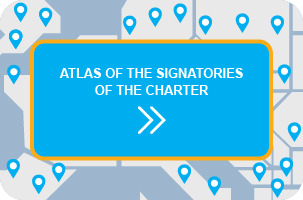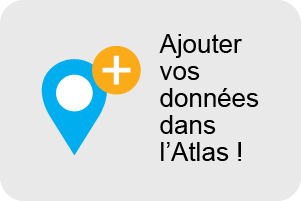City of Brussels – interview
Interview with:
- Anne-Cécile Huygens – Policy officer – Department of Equal Opportunities
- Alexandre Van Der Linden – Executive Assistant to Deputy Mayor Mohamed Ouriaghli
Date of interview: 2014/11/14
Signature of the Charter: First signature in 2008, adopted by the Municipal Board in 2011
Background to the signature of the Charter:
The signature of the European Charter was an opportunity for the City of Brussels to structure the equality work within the City and put gender equality on the political agenda. The idea to sign the Charter came after a training-course provided for the staff of the Advisory Council.
Before the signature of the Charter, the work on equality in the City had mainly been carried out by local associations that received financial support from the City administration to work on activities focusing on certain groups of the population mainly women and on specific topics such as violence against women, literacy or integration of migrants.
An Advisory Board on equality of women and men was created in 2007, under the leadership of the Deputy Mayor in charge of Equal opportunities. The creation of the Advisory Board was a milestone for the work on equality of the city. The council consists of representatives of associations already active in the field and representatives of the city administration in charge of gender equality policies. The aim of the Advisory body is to be a platform for exchange with different stakeholders active in the field and to come up with propositions on activities and evaluation of the work related to equality in the city. Various working groups focusing on specific topics such as a “gender budgeting group” and a group dealing with gender based violence were established within the Advisory Board.
Once the Charter had been adopted by the Municipal Board a working group in charge of the Charter was established and the preparations to elaborate an action plan were initiated. This work was done in close collaboration with other municipalities within the Brussels area and with the Association of Cities and Municipalities in the Brussels Region (AVCB). The official signature of the Charter by the City of Brussels was done in 2011 after the adoption of the Charter in the Municipal Board.
Elaboration of the Action plan: The elaboration of the action plan started in 2008 with the first adoption of the Charter. The elaboration of the action plan was done in different steps. The first step constituted in identifying other action plans to learn from these practices and see how to develop an action plan adapted to the specificities of the City of Brussels.
The first draft of the action plan took 6 months and this was done in collaboration with local associations. During these six months the Department of Equal Opportunities made regular reports to the Advisory Council to keep them informed of the progress of the elaboration of the action plan.
A first draft action plan was presented at a meeting with representatives from different departments of different Deputy Mayors of the City. Each concerned department was invited to come up with ideas on how to change or improve the activities related to their areas of competence. Following this consultation, the action plan was revised and updated accordingly in order to ensure a broad political support in the Municipal Board.
In total, the elaboration of the action plan took 1,5 year. The final Action plan was published and officially launched in 2014.
The action plan of the City of Brussels has been elaborated according to the model of Agenda 21. Seventeen areas of action were defined corresponding to the articles of the European Charter and the areas of competence of the City of Brussels. Concrete objectives are proposed in the action plan corresponding to these areas. For each objective a clear desorption is provided on the purpose, context, concerned departments or stakeholders. A timeline is also presented as well as indicators to evaluate the proposed activities.
Added value of the Charter: The signature of the Charter was a way to officially demonstrate the commitment of the City of Brussels to working with equality, especially as a capital. The signature of the Charter also paved the way to encourage the City to set up a specific budget for developing activities on gender equality, to finance the project proposed by the Advisory Board and to elaborate the action plan.
The Department on Equal Opportunities and Diversity at the City of Brussels
The Department on Equal Opportunities and Diversity is working on different thematic: Equality between women and men, disability issues, minority issues, sexual diversity and domestic violence. Three employees are working full time at the department. They are also collaborating closely with elected representatives and partner associations.
The Department has a key role in coordinating the equality work of the City: elaborating the action plan, coordination its implementation, monitor the activities outlined in the action plan etc.













